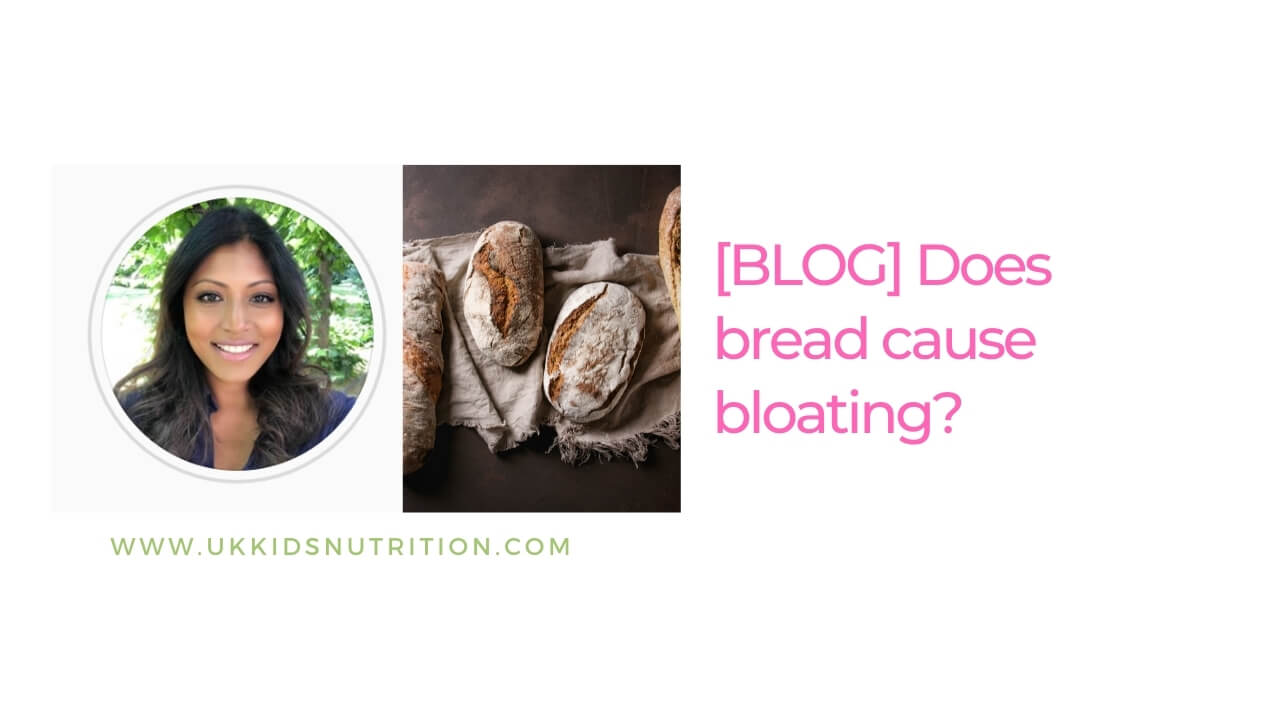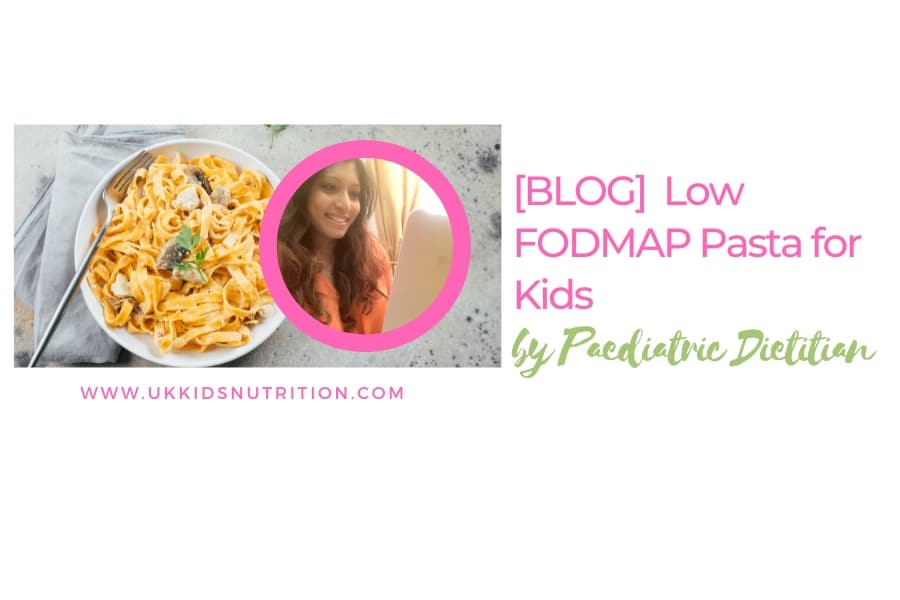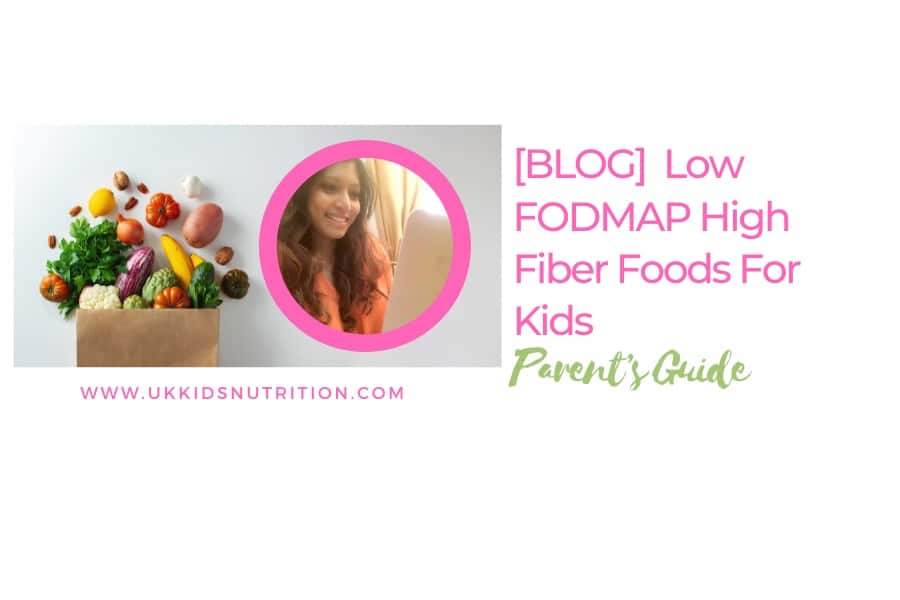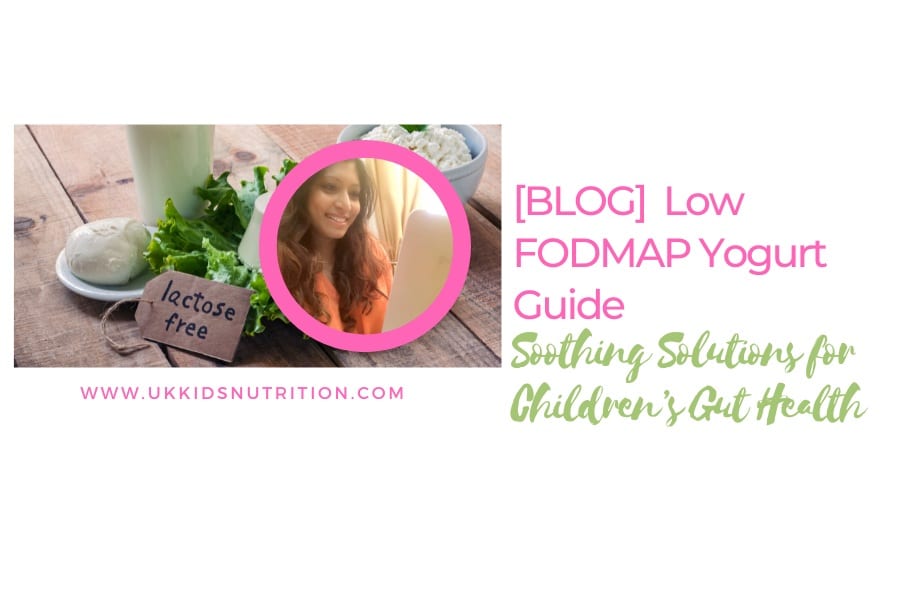Ever wondered ‘does bread cause bloating?’ For example, is your child complaining about bloating after eating bread?
Bread is a staple food that children readily love and accept.
So if your child is complaining about tummy pain after eating bread, should you cut it out?
Maybe you’ve also read that gluten-free and sourdough bread are suitable alternatives, but you are not fully sure if this advice applies to children.
If that sounds about right, then keep reading.
In this article, we’ll explore the science behind why bread can cause bloating in some children and the best tummy-friendly alternatives for your child.
What is bloating?
Bloating is when your child’s stomach has noticeably visible distention.
Your child may also complain that their tummy feels full and tight (but without any visible distention).
Bloating is a common side effect in children living with irritable bowel syndrome (IBS).
IBS is a functional digestive problem that can affect both children and adults.
In IBS, children may experience constipation, diarrhoea or both along with lower tummy pain, bloating and excessive wind.
For more details on how IBS is diagnosed in children see Kid Poop Chart & IBS Explained.
Why does bread cause bloating?
Most types of bread are made from grains called wheat.
Some bakers may also use non-wheat grains such as oats, rice and millet.
Wheat contains a type of carbohydrate called fructans which most adults and children can have difficulty digesting completely.
During the digestive process, fructans travel to the large intestine in the body to be digested further.
Unfortunately, humans lack the enzyme to fully break down the fructose molecules that make up fructans.
So it doesn’t get broken down enough to be absorbed by the small intestine to enter the bloodstream. Fructans are therefore not digested in the small intestine of humans.
Instead, it gets fermented by the resident bacteria in the gut.
On the plus side, this process helps the growth of beneficial bacteria called bifidobacteria and lactobacilli in the gut.
Fructans are therefore prebiotics.
The bad news is that fermentation by our friendly bacteria in the gut can release gas. This can cause abdominal distention, pain and flatulence.
The perception of bloat and pain is particularly exaggerated in children and adults with IBS.
If your child has IBS, this can also trigger diarrhoea when water is drawn into the bowel.
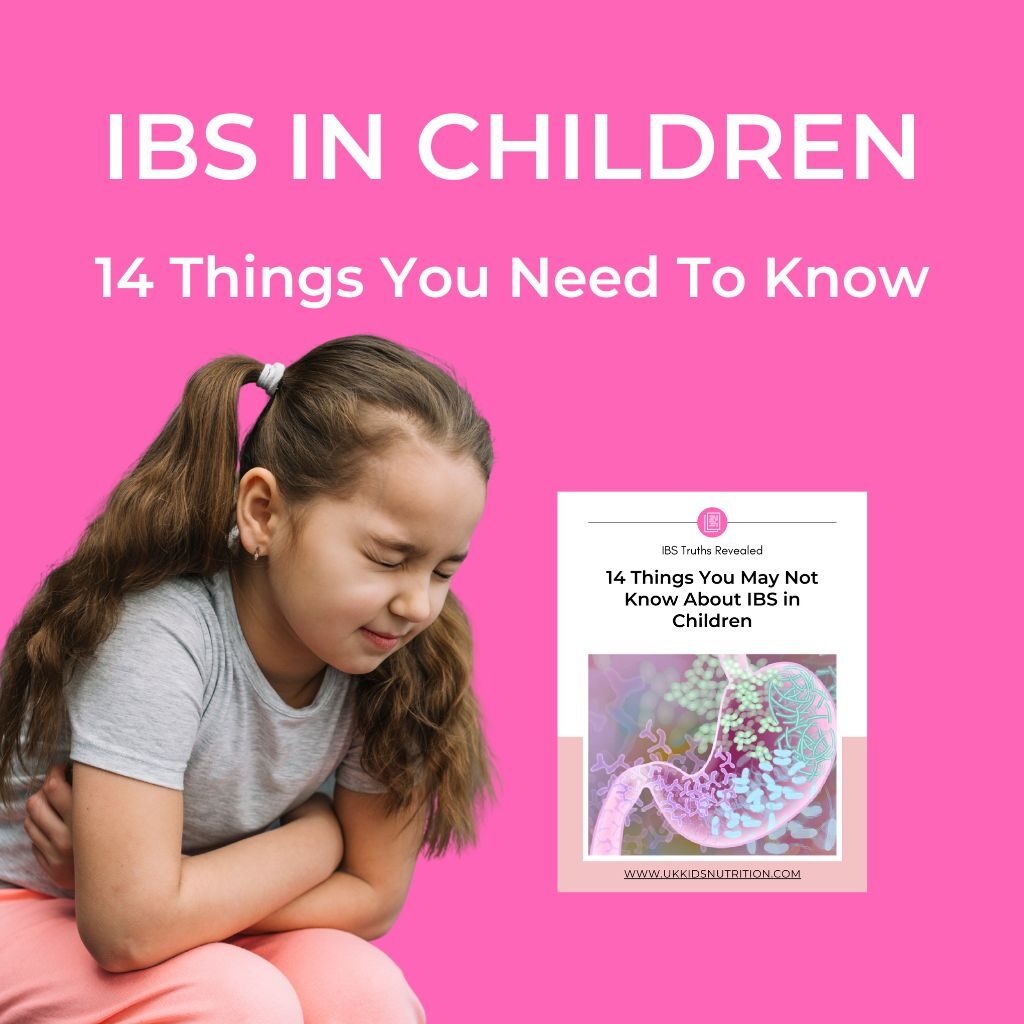
Should children avoid bread?
If your child reports bloating after bread, it’s normal to assume that you should cut it out.
But the truth is your child may not need to completely avoid bread and other wheat-based products.
Children with IBS may indeed have difficulty digesting and tolerating the fructans present in the bread.
Despite this, try to include bread in your child’s diet if they are otherwise healthy and well.
Bread is a particularly useful source of carbohydrates, fibre and prebiotics.
So if your child complains of tummy pain after eating bread, the best thing to do is to try a smaller portion of wheat-based bread in the first instance.
This will give you an idea of whether they can tolerate a smaller quantity of wheat-based foods during the day.
For babies starting bread for the first time, see Which Bread For Babies?
Does rye bread cause bloat?
The grain rye is similar to wheat and contains fructans.
Fructans can be poorly absorbed in the small intestine too and is another food that can cause gas in some children.
If your child eats large quantities of rye bread in one sitting, then this can cause bloating and tummy pain.
If your child has IBS they may also experience a change in their poop pattern such as loose poop.
This is because rye may contain other FODMAPs like fructose and galactooligosaccharides (GOS) so not just fructans.
Children with IBS may find that their symptoms are triggered by some of these other FODMAPs that can be present in the bread.
If you are not sure whether your child may have irritable bowel syndrome and what their trigger foods are, speak to your GP to rule out coeliac disease first before exploring a diagnosis for IBS.
What is coeliac disease?
Coeliac disease is a medical condition where children and adults react to the gluten in wheat, rye and barley.
Gluten is the protein component in foods made with wheat, rye and barley.
When children with confirmed coeliac disease eat foods containing gluten, their body reacts to it.
In coeliac disease, the immune system attacks its own cells when foods containing gluten are eaten.
Common symptoms of coeliac disease include diarrhoea, tummy pain and bloating.
As you can see, these symptoms are very similar to IBS.
It’s therefore important to speak with your medical doctor and seek medical advice before making changes to your child’s diet.
Does yeast in bread cause bloat?
Although yeast itself is low FODMAP, if we assume that it’s the fructans that trigger symptoms in your child, when yeast is used to make bread, the fermentation period is shortened.
The final wheat-based bread will contain fructans which will ferment and release gas in the colon.
And so it’s the shortened fermentation period as a result of using yeast that may have contributed to the ‘bread intolerance’ phenomena! (see Costabile et al 2014).
The good news is that bread and sourdough breads prepared by the traditional long fermentation process are less likely to cause gas and bloating. ‘Standard’ bread is made using the Chorleywood Bread making Process.
Can sourdough bread cause bloating?
Spelt sourdough bread can be more gentle on tummies.
The yeast and lactic acid used in bread making degrade the fructans during the fermentation process.
The final amount of fructans in sourdough bread is considered to be low, providing that it has been prepared using the traditional method.
Sourdough bread is, therefore, a suitable alternative to reduce bloat in children.
You can also try the alternative tummy-friendly grains used in bread described below.
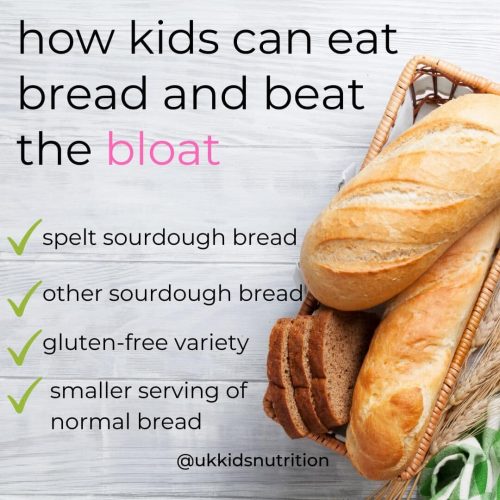
Bread that doesn’t bloat children
Gluten-free bread
Gluten-free bread can be used in children who are sensitive to the fructans found in wheat.
Note that many parents assume that their children need to avoid gluten but in IBS, it’s the carbohydrates within bread that are poorly absorbed.
Gluten on the other hand is a protein found in wheat and is not a carbohydrate.
Gluten-free bread can be useful in children with IBS as the grains used to make gluten-free bread is low in wheat. This means that the overall quantity of fructans is low.
Occasionally gluten-free bread may contain other FODMAPs such as galactooligosaccharides (GOS), chicory root, inulin, honey or milk powders and other high FODMAP ingredients.
It pays to read labels to check the ingredients list if your child is on the elimination phase of the IBS Kids Programme.
Oat based sourdough bread
Loaves of bread prepared from oat flour or oat bran are considered low FODMAP and won’t trigger bloating for your child.
However as described above, do check the remaining ingredients for other ingredients that may trigger bloating, tummy pain and a change in your child’s poop pattern.
Bottomline
In children with IBS, the fructans found within wheat and rye-based bread can trigger bloating, tummy pain and a change in their usual poop pattern. It’s not always necessary to cut out bread. Serving a smaller portion size or cooking with a variety of grains may be enough to reduce the bloat and associated belly ache.
Failing that, if you are not sure which foods cause bloat and tummy pain for your child, enquire about my IBS Kids Programme. The programme has been diagnosed to help identify the full spectrum of trigger foods. As the symptoms of coeliac disease and IBS are similar, it’s a good idea to speak with your medical doctor or paediatric dietitian before making any dietary changes.
Let Me Help
Would you like to meet a children’s dietitian who has successfully helped families solve their nutrition problems from around the world?
No matter what you are worried about, I’ll help you manage these with confidence.
